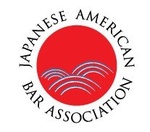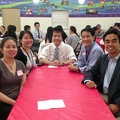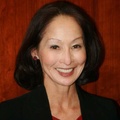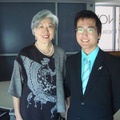As the Nikkei Community Intern for the Japanese American Bar Association (JABA) and the Japanese American National Museum (JANM), I was given the opportunity to volunteer at JABA’s free legal clinic on Saturday, June 29, 2013.
Throughout the year, JABA periodically hosts legal clinics throughout the Los Angeles area; the particular event I went to was fortuitously held at the Legal Aid Foundation of Los Angeles (LAFLA) in the Crenshaw District. I had long marveled at this society of Japanese American attorneys and judges and was excited at the opportunity to volunteer at this event.
On the day of the clinic, I arrived about 30 minutes early and sought a seat inside the building. But the doors were locked, the main entrance was still shuttered, and there was no sign of existence around the area. After what seemed like minutes, I was let in by a lead LAFLA volunteer who had also just arrived; puzzled, I inquired about the high-security situation at the agency.
The volunteer told me the area had been the scene of a robbery two days prior. Stunned, I wondered if the clinic was still going to take place; after all, it wasn’t the safest place to be. However, soon enough, there was the cheeriness and vigor of the numerous volunteers and attorneys who streamed into the building. As did I, they cared more for the many people who were looking forward to receiving legal advice than they did anything else.
After the meets-and-greets had taken place, we all grabbed a bento box lunch provided by the sponsoring organizations and settled down to eat and talk about myriad issues ranging from legal terms to Japanese kanji . Most of the volunteers and lawyers were Japanese Americans, but there were also those who were not. One by one, we each shared our experiences and backgrounds. This not only expanded my cultural horizons, but also in the process, I learned the importance of Japanese American culture. Though its respective influences and importance varies with the individual, there seemed to be a general consensus that Japanese American culture helped in shaping identity and building a JA community that included non-Japanese Americans or mixed-race persons as well. With awe and respect, I listened, nodded, and learned.
Then, it was time to work. After setting up the table for registration and chairs for the clients in the waiting room, I helped with registration for most of the legal clinic hours. There, I was spoken to in Japanese by many of the visitors and was initially startled (I’m fluent in Japanese but I need some work in keigo or honorific speech). The situation caught me by surprise, but I somehow managed to speak formally and address their concerns. Thankfully, though, my knowledge of the Japanese language speedily came back to me. Soon, I was able to speak comfortably with the visitors and lend sympathetic words to their circumstances.
Upon listening to the stories of their hard times, I realized the importance of the JABA attorneys who were about to help them. The lawyers were taking time out of their busy schedules to offer free legal advice to those who otherwise could not afford it or would not be able to receive it for reasons such as language barriers. Some of those who came were desperate; some were clearly depressed. Without a legal means to resolve their problems, they were helpless. To these visitors, the lawyers were the kind, selfless consultants who gave them thoughtful advice, a path out of their predicaments, and, above all, solace.
Through this experience, I learned that lawyers are people just like you and me. They eagerly serve others in their times of need, lend help to their fullest capacity, and feel sympathy in sorrowful situations. This explanation was necessary, because too many times, lawyers are labeled liars or other unpleasant epithets. This needs to change.
Indeed, there may be a few who fit under such distasteful characterization but I have met with many more noble guardians of justice at this legal clinic. I also witnessed one of the countless great ways JABA serves the community: the lawyers in the organization provide a gateway for many who reach an impasse in legal issues due to language or financial reasons.
Overall, the legal clinic endowed me with great confidence and significant realizations. It reinforced my legal aspirations, allowed me to connect with my Japanese American background through others who shared a similar love for the vibrant cultural tapestry of Japanese Americans, and taught me the importance of law. It is evident that I took away a lot from my experience; I am only hoping my volunteer time gave back just as much.
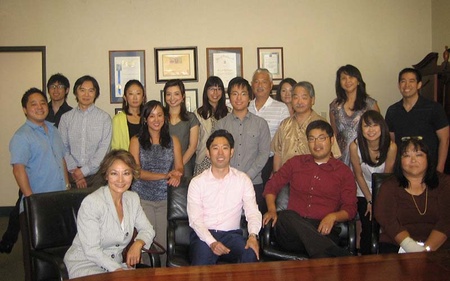
JABA legal clinic volunteers at LAFLA on June 29, 2013 (Photo courtesy of Japanese American Bar Association)
*This is one of the projects completed by The Nikkei Community Internship (NCI) Program intern each summer, which the Japanese American Bar Association and the Japanese American National Museum have co-hosted.
© 2013 Sean Hamamoto


